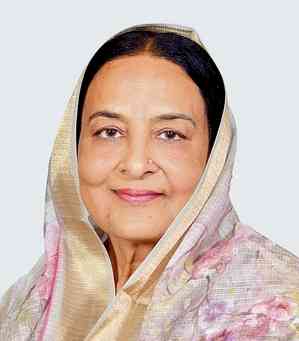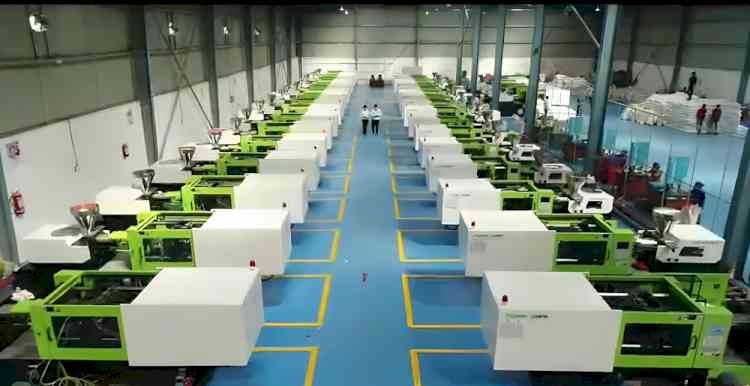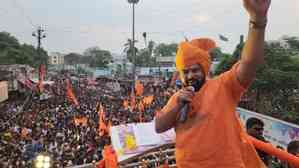What about the Right to Good Governance?
Author(s): Joginder SinghThe Author. Just like Right to Education doesn't guarantee good academics and the Right to Food will perpetuate hunger and poverty, the proposed Right to Water is yet another empty electoral gimmickAbraham Lincoln...


The Author.
Just like Right to Education doesn't guarantee good academics and the Right to Food will perpetuate hunger and poverty, the proposed Right to Water is yet another empty electoral gimmick
Abraham Lincoln once said: “You can fool some of the people all of the time, and all of the people some of the time, but you cannot fool all of the people all of the time.” But our leaders believe that they can do so. The Government announces many schemes supposedly to alleviate poverty or provide welfare services but they are rarely implemented. Recently, the Union Government said that it would like to pass a law on the right to 25 litres of water every day for each citizen. But Right to Life and Liberty are already guaranteed in the Constitution, and includes Right to a Good Life.
The draft National Water Framework Bill, which provides the legal basis for this so-called ‘Right to Water’ says that: “The minimum quantity of potable water shall not be less than 25 litres per capita per day”. But in another segment, it also says that, “The quantity must be fixed by the appropriate Government”. The Bill also says that Governments should specify the “quality standards” of water supply for various uses like drinking, livestock, irrigation and industries among others.
New Delhi is the seat of the Union Government, and even here, water supply is not only dismal but grossly inadequate and largely contaminated. The day the Bill was sent to the States for their views, in Delhi, half-a-dozen people died and over 50 were hospitalised due to water-borne infection. In fact, in some Delhi colonies, the water and sewerage pipes run parallel, and leakage from one or both renders the water unfit for drinking.
Let us take a look at some of the other such ‘rights’ that the Union Government has legislated in recent years, such as the Right to Education. The Chief Minister of Goa called it an “absolutely foolish policy”. He added that a number of parametres in the policy, such as the ‘No Detention Clause’, were problematic. After the RTE, studying has become a farce as students are automatically promoted up to Class 9, irrespective of whether they have attained the desired skills and knowhow.
For 2013-2014, the Union Ministry of Human Resource Development has an education budget of Rs 65,869 crore. Of this, the Sarva Shiksha Abhiyan has been allocated Rs 27,258 crore for implementing the Right to Education Act. The previous budget for 2012-13 had an outlay of Rs 61,427 crore for education, with Rs 25,555 crore for Sarva Shiksha Abhiyan. The above are, however, not the only instances of how public funds are being squandered by the Government.
There are some schemes of the Government which are bottomless pits where any amount of money can be siphoned off. In October 2012, the Supreme Court posed a question on cleaning the Yamuna and other rivers. It asked what had been achieved after putting in so much money. “Where has all this money gone? We don’t see any improvement in the water of the river.” Yet, nearly Rs 12,000 crore has been spent in the last 18 years by the Union Government and the State Governments of Delhi, Haryana and Uttar Pradesh to clean up the river. There is no accountability on the part of those who make skewed policies or those who are responsible for
Bureaucrats with connections to powerful politicians can get away with murder. For example, recently when the then Indian Deputy High Commissioner in London was posted to Switzerland as India’s Ambassador, the incumbent in Geneva — the daughter of a former President — refused to hand over charge. So the other official had to be posted elsewhere!
Good governance has been sacrificed at the altar of vote-banks, where it is common to sup with the devil. And the Government believes it can make up for it by distributing freebies — computers, tablets or mobiles or even food in the form of the food security Act.
The National Food Security Act will condemn India’s poor to perpetual poverty. It aims to distribute grain to two-thirds of India’s population at a 90 per cent subsidy, costing over Rs 1,62,000 crore. If you give anybody anything free of any cost, he will consider it his ‘right’ for all time to come and will demand even more.
Corruption in India is fairly widespread, but there are individuals who are honourable exceptions. A friend wanted to start a private university. He was told that without a middleman, nothing will materialise. With a lot of difficulty, he found one who took him to the Minister concerned. He was directly asked by the Minister for eight crore rupees, and an advance of three crore rupees. My friend was a seasoned businessman, who immediately asked the Minister if there was any guarantee that he would get the work done. The Minister said that he had to trust his word.
My friend said that he would try to arrange the money and then get back to the Minister. He then asked me for advice, and I told him to trap the Minister and forget about doing anything illegal. He said that he never expected the Minister to handle such matters himself. I explained that these days, the corrupt handle money matters themselves to avoid being cheated. In this position, the beneficiaries are corrupt netas and dishonest bureaucrats, who thrive in an archaic system that has maze-like procedures and built-in delay mechanisms.
There is a vast chasm between policy-planning and its execution at the ground level. This is because we have an over-protected bureaucracy, which feels it has the right to govern, and most leaders are clueless as to how to deliver public goods.
In August 2010, the apex court had asked the Union Government to give away rotting food grains to the poor at low or no cost, as it would provide relief to billions. It also asked the Government to have a permanent solution to the problem by building adequate storage facilities. The then Union Food Secretary had said that as a result of record procurement of wheat and rice in the past three years, central pool stocks had reached 604.28 lakh tonnes. But there was no space to stock the produce. Now, since the next general election is only months away, the Government has brought in the food security Act, even though the rotting mountains of grain reveal its inability to deliver the same.
It is time to remind the Government what former Prime Minister Indira Gandhi once said: “There are two kinds of people. Those who do the work and those who take the credit. Try to be in the first group; there is less competition there”.

 cityairnews
cityairnews 

















